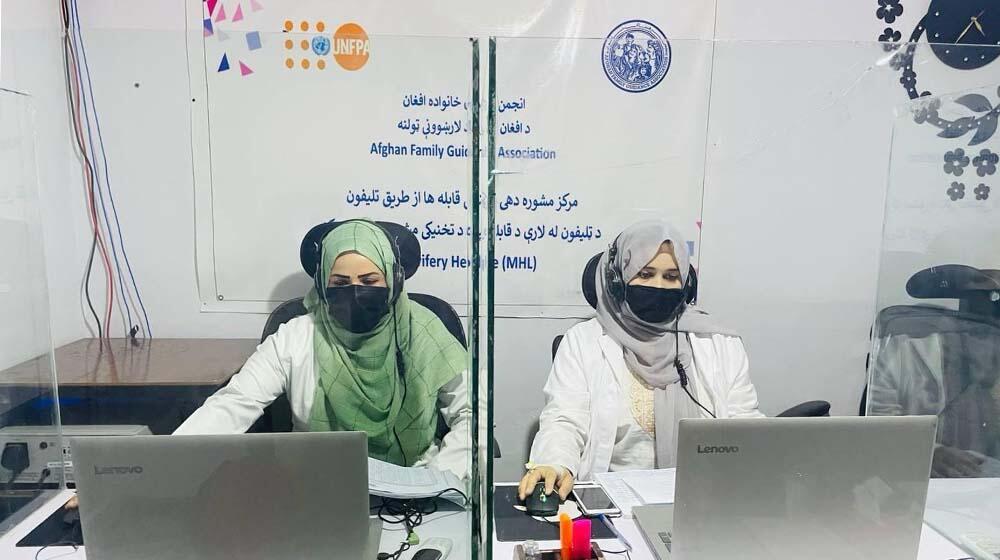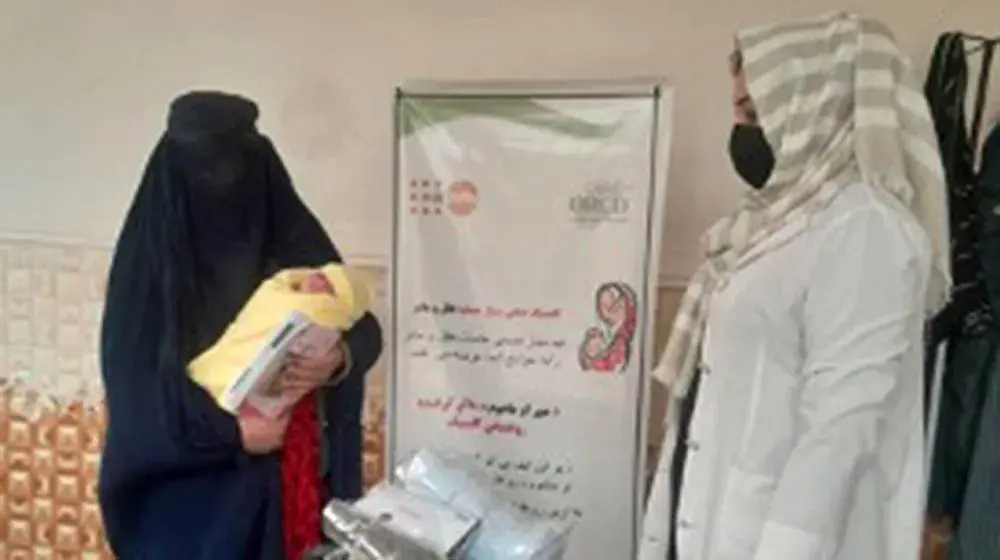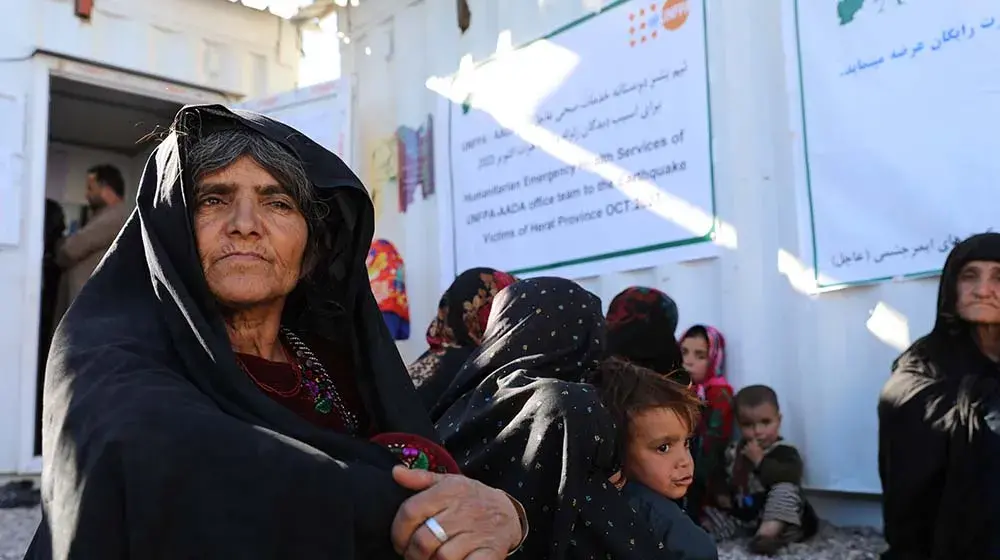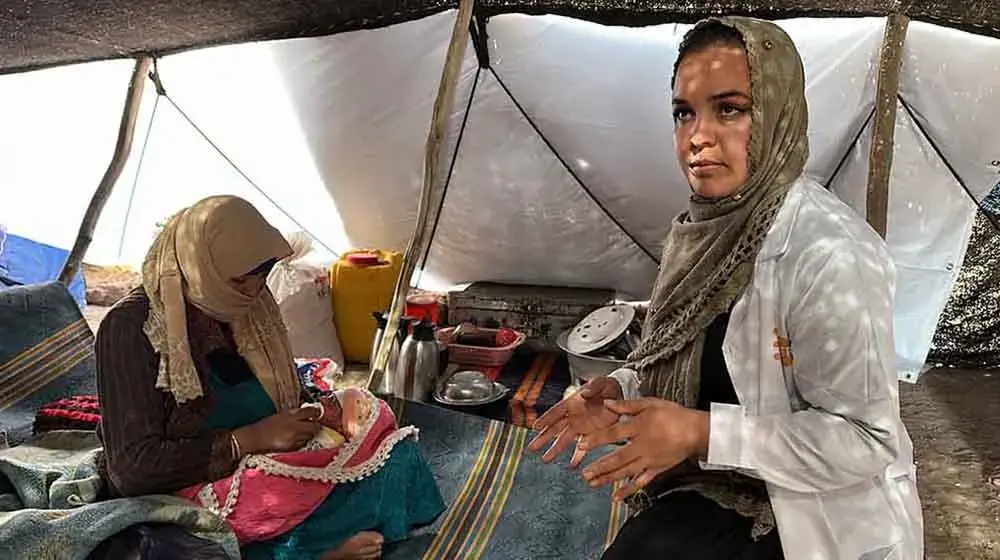"The Midwifery Helpline was a precious support for me. The doctor at the center walked me through managing the complications step by step."
Khadija, a midwife overseeing the Family Health House in a remote village in western Afghanistan, dealt with a patient facing a complicated delivery for twins. Although she was an experienced midwife, this was her first encounter with such a situation, prompting her to reach out for support from the Midwifery Helpline (MHL).
Fatima,* a 30-year-old mother of three, had not received any antenatal care during her fourth pregnancy and was unaware that she was expecting twins. All her previous children were born at home with the assistance of an elderly traditional birth attendant. As her labour intensified, her family again called upon the elderly woman for help.
The traditional birth attendant, however, backed out upon seeing Fatima’s unusually large abdomen. She advised the family to seek help from a midwife or doctor, as Fatima’s condition might require more specialized attention.
However, due to the lack of resources, Fatima’s family could not decide to bring her to a health facility. Fortunately, her brother-in-law learned had heard of a Family Health House in a nearby village. “When I examined Fatima in the FHH, I detected two heartbeats,” the midwife recalled. Fatima was expecting twins.
While the vital signs were stable, the delivery proved difficult, prompting the midwife to contact the MHL for assistance.
Dr. Kubra Azizi, a gynecologist at the MHL, remembered receiving a phone call early in the morning from a midwife requesting assistance with a challenging delivery case. “I received a call from the midwife at the FHH in a remote area of Herat, at 7:50 in the morning. She described the situation and requested my guidance on how to handle it.”
Recognizing the case's requirements, Dr. Kubra provided professional guidance to the midwife for managing the delivery. “I advised her to start by opening the veins and using a partograph. I also inquired about her first child, who was in a vertex position with regular contractions,” Kubra narrated. After an hour, Fatima successfully delivered her first boy, who was in good health.
However, the second child was in a breech position, and the contractions were weak. After enhancing the labour, the patient's contractions normalized, and after 40 minutes, she delivered her second child.
After delivery, Fatima stayed at the FHH for six hours to ensure the situation of the mother and twin boys was stabilized. During this period, the MHL continued to provide additional consultation to the midwife.
The MHL platform played a vital role in saving the lives of Fatima and her twins. In such a remote area of the country, where the local women have limited access to health services, the presence of the midwife and support of the MHL was crucial. The immediate support and guidance from the MHL, which is supported by the Government of the United Kingdom, helped the midwife to make informed decisions and take appropriate actions to save Fatima and her twins.
*Name changed to protect privacy.





